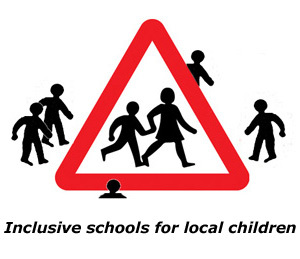Major new report on faith-based discrimination in primary school admissions
In a new report, Richmond Inclusive Schools Campaign (RISC) claim that faith-based admissions to local church primary schools are significantly restricting the choices available to non-churchgoing parents. Recently Vince Cable called for local faith schools to be more “community minded” in their admissions. The RISC report suggests simple changes their governing bodies could make to do that.
The report comes hard on the heels of the story of a four year old in Twickenham with no school place at all.
RISC spokesman, Jeremy Rodell said: “This is a look at the facts about faith-based discrimination at local primary schools. A third of all primary places are at the sixteen local church schools. Thirteen of them were over-subscribed this year. The result was that, on average, 80% of their places were offered to children selected on the basis of their parents’ religious practice. At the same time, most of the community schools were also over-subscribed. The combined effect was that churchgoing parents had a much wider choice than anyone else, and some parents were not offered a Reception place at a reasonable distance from home. We think that’s unfair, especially as all the schools are state-funded.
Our mapping shows the places where the situation is particularly severe. They include most of Twickenham/north Teddington, as well as an area around central Barnes, Sheen and Mortlake.
Our improvement suggestions are intended to make a constructive contribution to alleviating the pressure. They do not meet RISC’s ultimate aim of full inclusivity. But they are all simple steps school governing bodies can take if they choose to, without changing their schools' status or ethos. And they are in line both with Vince Cable’s call for more community-minded admissions, and calls by the Anglican Diocese of London for greater inclusivity.
Governing bodies of Catholic and Church of England primaries now have the evidence they need to make positive decisions about their admissions policies over coming months. We are hopeful that they will choose to do that. We also hope that Richmond Council will acknowledge the general pressure on primary school places and actively encourage governing bodies to do the right thing.”
Notes for editors:
· The report includes footnotes with links to sources, as well as links to appendices giving the raw data.
· Our website, www.richmondinclusiveschools.org.uk gives background on Richmond Inclusive Schools Campaign, and a wealth of other information
